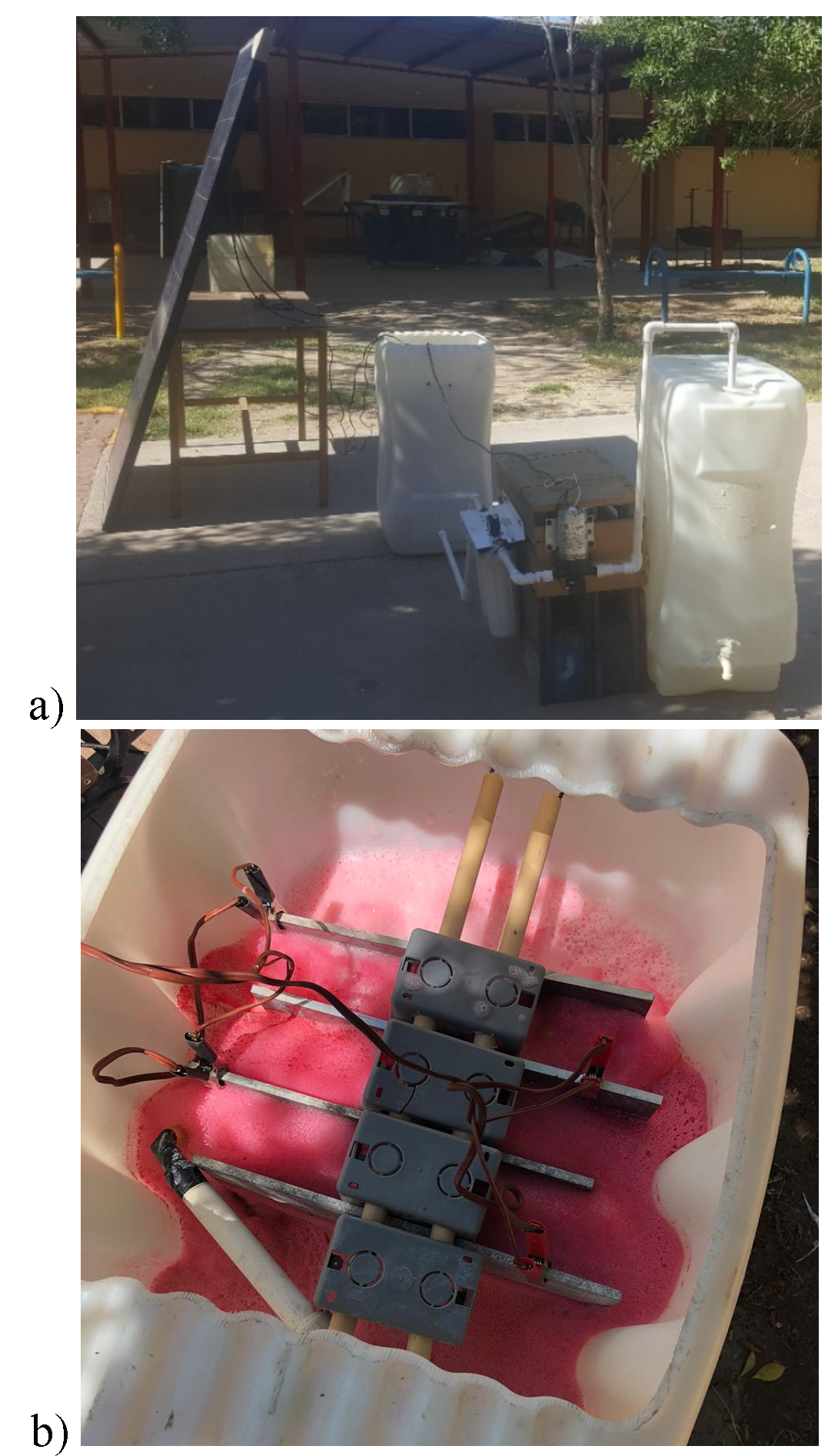 |
|
This work deals with the design of a domestic wastewater treatment system for the washing machine, which is mainly based on responsibility to the environment in terms of the correct administration and proper management of the most significant asset that man possesses, water. In Mexican homes, one of the main domestic processes is laundry, where a large amount of water is used to clean clothing. Electrocoagulation is a process that can be used in the treatment of different wastewater due to its versatility and environmental compatibility. In the present investigation, the applicability of electrocoagulation for the treatment of domestic wastewater from the washing machine through the use of photovoltaic solar energy was analyzed. The effects of operational parameters such as current density, treatment time on turbidity, pH, and conductivity were studied. The objective of this project is to research alternatives to domestic wastewater treatment systems from the washing machine, through the use of photovoltaic panels taking advantage of and reusing the water from the washing machine after each washing process. Reduce the waste of the resources from homes, can contribute positively to the environment, and demonstrate that electrocoagulation is a viable alternative in the challenge of protection, conservation, and recovery of water resources.
Keywords: wastewater treatment, washing machine, electrocoagulation process, photovoltaic solar energy, photovoltaic panels.
|
|
 |

